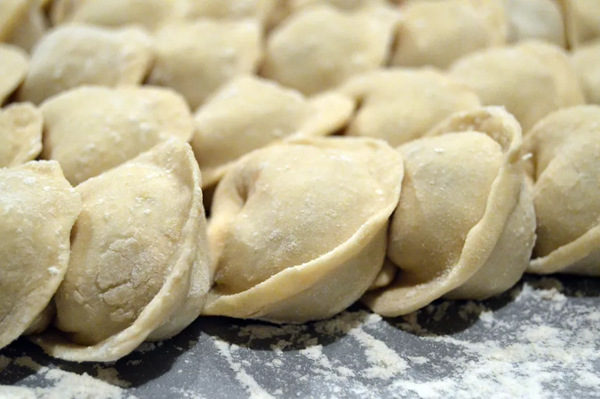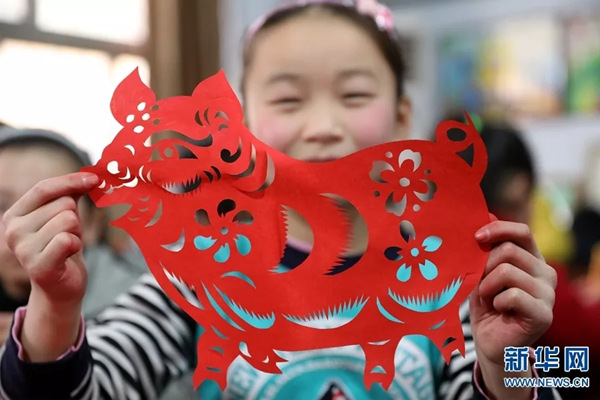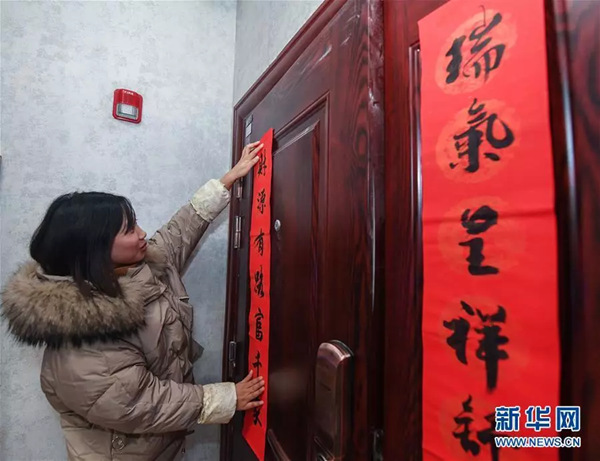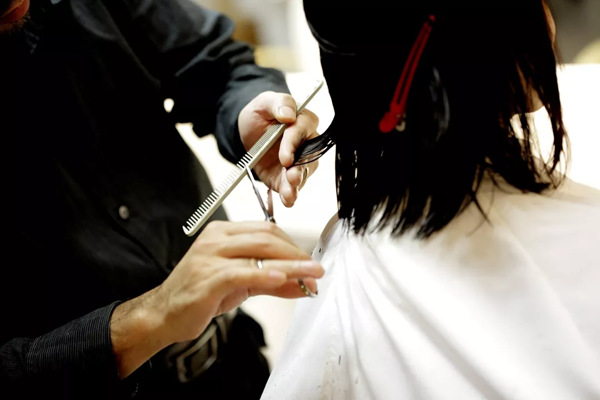


The date of Xiao Nian, or Little New Year, varies according to different folk customs. Usually, Xiao Nian arrives on the 23rd of the twelfth Chinese lunar month in northern China, and the 24th in the south.
People start shopping and cleaning in anticipation of the Lunar New Year at the beginning of Little New Year. It epitomizes the core value of Chinese people’s hope for good luck in the Lunar New Year.
So, how much do you know about Little New Year?
Worship the Kitchen God

There is a myth that the Kitchen God (literally “god of the hearth”) will report a family's good and bad deeds to the Jade Emperor, a god in Chinese Taoist mythology, to decide whether they should be rewarded or punished. Therefore, people often use candies, water, and beans as offerings to the Kitchen God. Melted candy or sugar is smeared on the lips of the Kitchen God's statue, in the hope that it won't speak ill of the family.
Food

Dumplings are a firm favorite for people in northern China during Little New Year. The custom derives from an old saying, “Eat dumplings while sending someone away for a journey, and welcome one with noodles.”
In the mountain areas, however, cakes and buckwheat noodles are more common.
People in northeastern Shanxi Province enjoy sesame seed candy, and their southeastern counterparts usually prefer fried corn. Rice cakes are prevalent in Wuxuan County and Guiping City of Guangxi Zhuang Autonomous Region.
Sweeping the dust

People name the days from the twenty-third of the twelfth Chinese lunar month to Lunar New Year’s Eve “coming spring days,” or “Dust-sweeping days,” a period where spring cleaning is necessary.
In Chinese, the character for “dust” sounds a lot like the character for “old”, so sweeping the dust is also synonymous with getting rid of the old, including unhappy memories and past bad luck.
Window paper-cuttings

Window paper-cutting is the most common folk activity in China. Myriads of anecdotes, such as the magpie and the wintersweet rose or the swallow gliding through peach and willow trees, are embodied through different styles of paper-cuts. Displaying paper-cuts on windows signifies a fruitful Lunar New Year.
Putting up spring couplets

An old saying goes, “Put up the paper-cuts wherever there is a God, a door or an item.” Every household buys and puts up spring couplets at the start of the Little New Year. Most families spend a great deal of time on these, as a pair of well-written couplets is equivalent to a future year of wealth and health.
Bathing and shaving

Bathing and getting a hair cut on Little New Year is necessary for both adults and kids. Many people still stick to this custom with the saying, “Go to a barber for New Year if you have a dime in your pocket.”
Marriage

People believe that not a single taboo exists after Little New Year since all the Gods will ascend to heaven. It also means there's no hesitation when it comes to choosing a wedding day. As a result, numerous weddings will take place before the end of the Lunar New Year.
The countdown to the Spring Festival starts at the beginning of Little New Year, with the majority of people preparing for Lunar New Year’s Eve during this period.
“Paying an earlier New Year’s call,” a phrase we usually use before New Year’s Day, is also counted from the beginning of Little New Year.
The kitchen may be one of the busiest places between Little New Year and Lunar New Year’s Eve. There’s even a folk rhyme to depict the busy kitchen from the twenty-third of the twelfth Chinese lunar month.
Twenty-third, pumpkin candies, twenty-fourth, spring cleaning.
Twenty-fifth, tofu time, twenty-sixth, make meat stew.
Twenty-seventh, kill the rooster, twenty-eighth, rise the dough.
Twenty-ninth, steam the buns.
New Year’s Eve, stay up late.
New Year's Day, celebrate!
 Fire brigade in Shanghai holds group wedding
Fire brigade in Shanghai holds group wedding Tourists enjoy ice sculptures in Datan Town, north China
Tourists enjoy ice sculptures in Datan Town, north China Sunset scenery of Dayan Pagoda in Xi'an
Sunset scenery of Dayan Pagoda in Xi'an Tourists have fun at scenic spot in Nanlong Town, NW China
Tourists have fun at scenic spot in Nanlong Town, NW China Harbin attracts tourists by making best use of ice in winter
Harbin attracts tourists by making best use of ice in winter In pics: FIS Alpine Ski Women's World Cup Slalom
In pics: FIS Alpine Ski Women's World Cup Slalom Black-necked cranes rest at reservoir in Lhunzhub County, Lhasa
Black-necked cranes rest at reservoir in Lhunzhub County, Lhasa China's FAST telescope will be available to foreign scientists in April
China's FAST telescope will be available to foreign scientists in April "She power" plays indispensable role in poverty alleviation
"She power" plays indispensable role in poverty alleviation Top 10 world news events of People's Daily in 2020
Top 10 world news events of People's Daily in 2020 Top 10 China news events of People's Daily in 2020
Top 10 China news events of People's Daily in 2020 Top 10 media buzzwords of 2020
Top 10 media buzzwords of 2020 Year-ender:10 major tourism stories of 2020
Year-ender:10 major tourism stories of 2020 No interference in Venezuelan issues
No interference in Venezuelan issues
 Biz prepares for trade spat
Biz prepares for trade spat
 Broadcasting Continent
Broadcasting Continent Australia wins Chinese CEOs as US loses
Australia wins Chinese CEOs as US loses